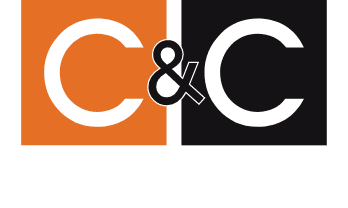C&C have worked extensively in the House of Lords and so this month’s Head Chef interview is with their Executive Head Chef, Mark Thatcher who discusses what it’s like working in the very heart of the Government.
Q: What inspired you into becoming a chef?
A: I had a short spell in the Merchant Navy in the 70’s when I left school and one of my duties was looking after the Petty Officer’s mess. I worked in the galley and liked it so when I left I decided to train as a baker. After that I did an apprenticeship at the Grand Met in Canterbury and I ended up staying for 10 years and taking on my first head chef’s role there in 1981.
After that I worked for Whitbread Hotels and several private restaurants before seeing an advert in the Guardian for a Sous Chef in the House of Lords. I thought I would be there a few years and now 30 years later I am still here.
Q: How have things changed in those years?
A: My first Head Chef’s role was very hands-on, I was always in the centre of the kitchen cooking and controlling the pass during service; ordering supplies and managing the team when service was over. Generally doing what most people picture a chef’s job to be.
Now paperwork has taken over and I only manage the pass twice per week. Food safety legislation has made running a large catering facility a very paper heavy task and I don’t have as much time in the kitchen as I would like.
We have to document things in the smallest detail to maintain the records needed.
Q: What facilities do you manage at the House?
A: We started with one small and one large dining area. Now we have the Peers private dining area; the Long Room where they can dine with their guests; a staff dining area; sandwich bar and banqueting facilities alongside 6 new outlets offering a range of dining options.
It’s a large and busy operation with dozens of staff serving thousands of covers at all times of day or night.
Q: When did you first meet C&C?
A: C&C installed our £1m kitchen in 2005 and since then they have gone on to supply the majority of equipment to the House of Lords. I still have a great relationship with them and quite often see Project Manager Mark Roxburgh when he calls in to visit myself and the other chefs over in the House of Commons.
Q: So what are your pet hates?
A: Smears, celebrity chefs and vegetable purées. That and the paperwork already mentioned.
We also have a problem with short term thinking because of the need to cutback in order to save money. I believe this will end up costing more in the long run and is reflected in the “reactive maintenance” policy we have in place.
Planned maintenance might appear to cost more as you are spending when nothing is broken. But because you avoid many emergencies this way, you save money over time. Kitchen equipment is worked hard and we need to keep it maintained to have it working at it’s best.
Q: And the smears?
A: They’re just a fad and don’t add anything much to a dish and some of them look revolting.
Q: Your favourite ingredient?
Périgord truffles and scallops. I’m a huge fan of seafood in general and also love cooking with game.
Q: Favourite dish to cook?
A: A 5 bird roast, usually Goose, Pheasant, Chicken, Duck and Quail.
Q: What did you have for Christmas Dinner?
A: We normally have Goose or a 3 bird roast and if you’re cooking Goose remember you cannot “stab” it enough. You need plenty of holes to let the fat drain from the chest as it’s a fatty bird. You can also put water into the chest cavity so that it steams from within while cooking.
Q: What is your favourite dish to eat?
A: Calves liver with bacon and spinach and I prefer my liver nice and pink.
Q: What have been the best and worst moments in your career?
A: The best was winning my first AA Rosette at Ye Mades restaurant in Biddenden and the worst was the salmonella outbreak in 1988. We were hit by it here and that pretty much killed off the use of shelled eggs in dishes going forward.
Q:What is your favourite piece of kitchen equipment?
A: I have 2 favourites, the Thermomix and the Pacojet. The Thermomix is great because you can cook with it as well as having the normal food processor functions. This makes it perfect for preparing sauces and I also like using it for grinding and preparing spices.
The Pacojet is also a kind of food processor but I use it for mousses and soups and it’s excellent for these and other delicate dishes.
Q: If you could invent some item of equipment what would it be?
A: I would like a combi-oven where you can turn the fan on and off, I don’t think they make them yet. Light dishes can be blown all over the place by the fan, so sometimes it would be really handy if you could turn the fan off.
Q: What changes have you seen in kitchens?
A: There have been big changes in the equipment we use. Bratt pans and water baths in particular spring to mind. I was skeptical of water baths when they first arrived but now appreciate their usefulness.
Q: What changes would you like to see in the future?
A: I would like to see better training in colleges. Sometimes I am asked to visit then and when I see what they are being taught, it is too elaborate. They need to learn the basics first before they move onto the creative side. Less celebrity “ready steady cook” stuff and more building of their basic skill set.
Having said that the hospitality industry is a great career and on the whole the industry is in good shape so the future is looking bright.
C&C have worked extensively in the House of Lords and so this month’s Head Chef interview is with their Executive Head Chef, Mark Thatcher who discusses what it’s like working in the very heart of the Government.
Q: What inspired you into becoming a chef?
A: I had a short spell in the Merchant Navy in the 70’s when I left school and one of my duties was looking after the Petty Officer’s mess. I worked in the galley and liked it so when I left I decided to train as a baker. After that I did an apprenticeship at the Grand Met in Canterbury and I ended up staying for 10 years and taking on my first head chef’s role there in 1981.
After that I worked for Whitbread Hotels and several private restaurants before seeing an advert in the Guardian for a Sous Chef in the House of Lords. I thought I would be there a few years and now 30 years later I am still here.
Q: How have things changed in those years?
A: My first Head Chef’s role was very hands-on, I was always in the centre of the kitchen cooking and controlling the pass during service; ordering supplies and managing the team when service was over. Generally doing what most people picture a chef’s job to be.
Now paperwork has taken over and I only manage the pass twice per week. Food safety legislation has made running a large catering facility a very paper heavy task and I don’t have as much time in the kitchen as I would like.
We have to document things in the smallest detail to maintain the records needed.
Q: What facilities do you manage at the House?
A: We started with one small and one large dining area. Now we have the Peers private dining area; the Long Room where they can dine with their guests; a staff dining area; sandwich bar and banqueting facilities alongside 6 new outlets offering a range of dining options.
It’s a large and busy operation with dozens of staff serving thousands of covers at all times of day or night.
Q: When did you first meet C&C?
A: C&C installed our £1m kitchen in 2005 and since then they have gone on to supply the majority of equipment to the House of Lords. I still have a great relationship with them and quite often see Project Manager Mark Roxburgh when he calls in to visit myself and the other chefs over in the House of Commons.
Q: So what are your pet hates?
A: Smears, celebrity chefs and vegetable purées. That and the paperwork already mentioned.
We also have a problem with short term thinking because of the need to cutback in order to save money. I believe this will end up costing more in the long run and is reflected in the “reactive maintenance” policy we have in place.
Planned maintenance might appear to cost more as you are spending when nothing is broken. But because you avoid many emergencies this way, you save money over time. Kitchen equipment is worked hard and we need to keep it maintained to have it working at it’s best.
Q: And the smears?
A: They’re just a fad and don’t add anything much to a dish and some of them look revolting.
Q: Your favourite ingredient?
Périgord truffles and scallops. I’m a huge fan of seafood in general and also love cooking with game.
Q: Favourite dish to cook?
A: A 5 bird roast, usually Goose, Pheasant, Chicken, Duck and Quail.
Q: What did you have for Christmas Dinner?
A: We normally have Goose or a 3 bird roast and if you’re cooking Goose remember you cannot “stab” it enough. You need plenty of holes to let the fat drain from the chest as it’s a fatty bird. You can also put water into the chest cavity so that it steams from within while cooking.
Q: What is your favourite dish to eat?
A: Calves liver with bacon and spinach and I prefer my liver nice and pink.
Q: What have been the best and worst moments in your career?
A: The best was winning my first AA Rosette at Ye Mades restaurant in Biddenden and the worst was the salmonella outbreak in 1988. We were hit by it here and that pretty much killed off the use of shelled eggs in dishes going forward.
Q:What is your favourite piece of kitchen equipment?
A: I have 2 favourites, the Thermomix and the Pacojet. The Thermomix is great because you can cook with it as well as having the normal food processor functions. This makes it perfect for preparing sauces and I also like using it for grinding and preparing spices.
The Pacojet is also a kind of food processor but I use it for mousses and soups and it’s excellent for these and other delicate dishes.
Q: If you could invent some item of equipment what would it be?
A: I would like a combi-oven where you can turn the fan on and off, I don’t think they make them yet. Light dishes can be blown all over the place by the fan, so sometimes it would be really handy if you could turn the fan off.
Q: What changes have you seen in kitchens?
A: There have been big changes in the equipment we use. Bratt pans and water baths in particular spring to mind. I was skeptical of water baths when they first arrived but now appreciate their usefulness.
Q: What changes would you like to see in the future?
A: I would like to see better training in colleges. Sometimes I am asked to visit then and when I see what they are being taught, it is too elaborate. They need to learn the basics first before they move onto the creative side. Less celebrity “ready steady cook” stuff and more building of their basic skill set.
Having said that the hospitality industry is a great career and on the whole the industry is in good shape so the future is looking bright.
Get in touch
Head Office
C&C Catering Equipment Limited
Quarry Buildings
Hill Road
Eccleston
Chester
CH4 9HQ
01244 625170
info@cateringequipment.com
Copyright C&C Catering Group | website by CreationADM



